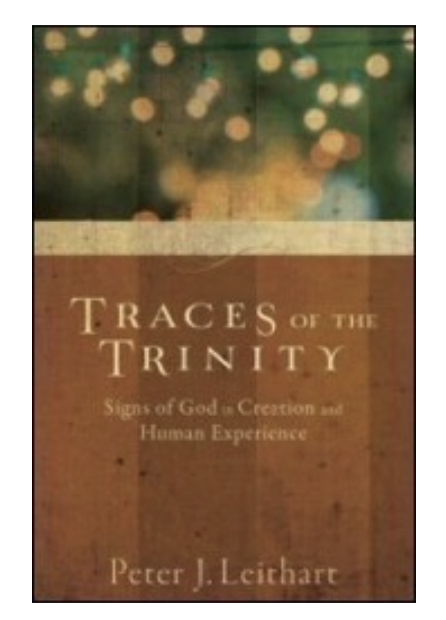
***
Welcome back to the podcast. Today, we stand on the peak and look back. Peter Leithart, in his Postscript, knows what some readers are probably asking: Is this too much?
Too much to see the Trinity everywhere? Too much to claim that creation hums with perichoresis — mutual indwelling?
Leithart hears the pushback — and answers it head-on.
***
Some theologians worry. They say: “Wait a minute — you can’t compare the relations inside the Trinity to human relationships.” After all, God is God. We are creatures. Isn’t that gap too wide?
Others say: Sure, God is relational — but “perichoresis” should only describe the divine Persons, not families, friends, music, time.
Some call this “creeping perichoresis” — like theological kudzu, spreading where it doesn’t belong.
Leithart says: fair points. The Triune God is unlike us — but the Bible itself keeps drawing these connections.
God is Rock. Sun. Light. Father. Husband. Shepherd. Warrior. The language is earthy — unembarrassed. Scripture doesn’t panic about analogies. It expects us to think with them — carefully, yes, but boldly.
***
Jesus prayed, “Father, may they be one as we are one.” The church’s unity is not a copy of something else — it’s a participation in the divine dance. “I in them, Thou in Me.”1John 17:23 That’s not poetry — it’s the Gospel.
Paul echoes it too: “Christ in you, the hope of glory.”2Col 1:27 “In Him we live.” We are in Him — and He in us. The Spirit dwells in us — and we dwell in the Spirit.
It’s not fusion — it’s fellowship. Distinct yet intertwined. And it’s more than metaphor. It’s how salvation works.
Of course, the pattern must be handled with care. The Trinity’s inner life is not just a diagram for human society. But if creation is the handiwork of the Triune God — then why wouldn’t the shape of the Maker echo in the shape of what’s made?
***
Some scholars say: “But God’s ways are too high, too different.” True. To an extent. But the Bible never makes us choose between transcendence and analogy. Scripture is full of bold images: “Like a father,” “like a mother,” “like an eagle.” The world is crafted to say something true about its Creator.
The clue is baked into Genesis: humans made in the image of God. Image-bearers carry resemblance. Not identical — but truly reflective. Think of us as being angled mirrors, reflecting God into the world and through our worship, summing up the praises of creation back to God.
As Leithart puts it in the final paragraph of the book:
“Of course, the biblical analogies must be handled with care. Of course, we must not conclude that, because we grasp something of how human beings relate, we know exactly what sort of relation the Father has with the Son. But we should be no more anxious about these analogies than Scripture is, and we should certainly not be so anxious about the limits of human knowledge and speech that we are reduced to silence. We worship a God who is Word; he has spoken, and he expects us to speak his words after him. He expects us to learn how to use everything he has revealed and named to honor, praise, and tell of him, because that is the destiny for which everything was created.”
***
So, Leithart argues, the pattern of mutual indwelling doesn’t flatten Creator and creature. It celebrates the fact that creation is designed to mirror the triune love at its heart.
We don’t just “balance” opposites. We dwell in the swirl. We find the traces — and the traces find us.
***
So here’s where he leaves us: the world is not a cold machine or a random accident. It’s a living song, a word woven of words, a dance of difference that holds together in the embrace of Father, Son, and Spirit.
Find the traces. Follow them home.
The Trinity leaves fingerprints on every inch of creation.
***
I welcome any questions or comments. [Don’t worry, your personal info will not be given to anyone.] Thanks!



